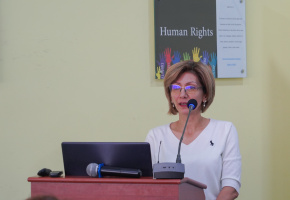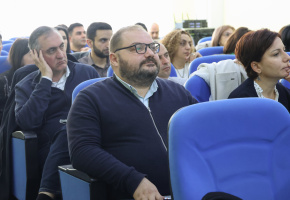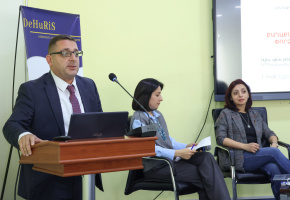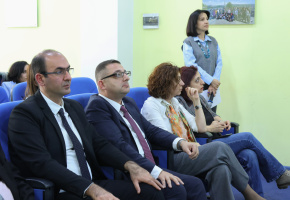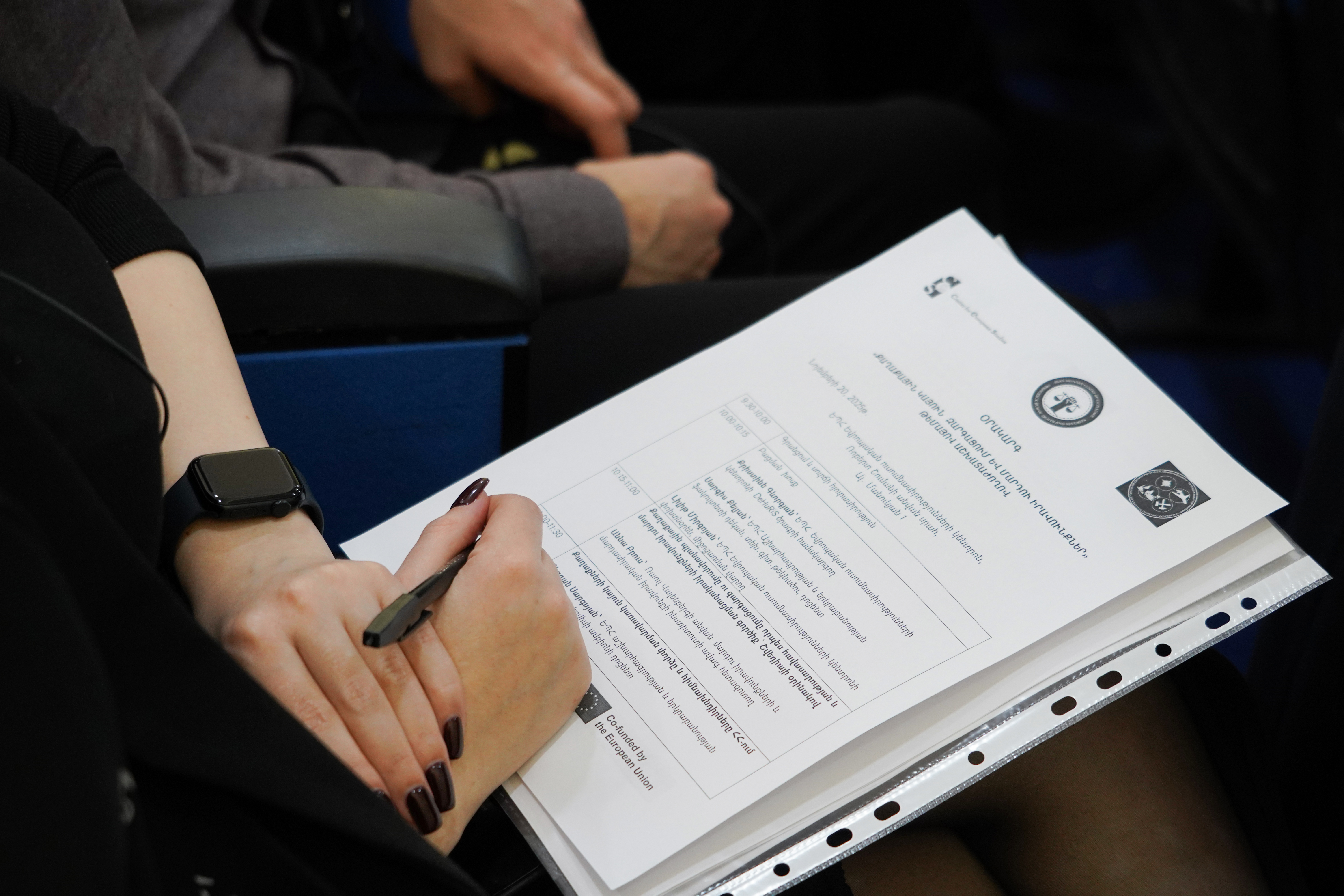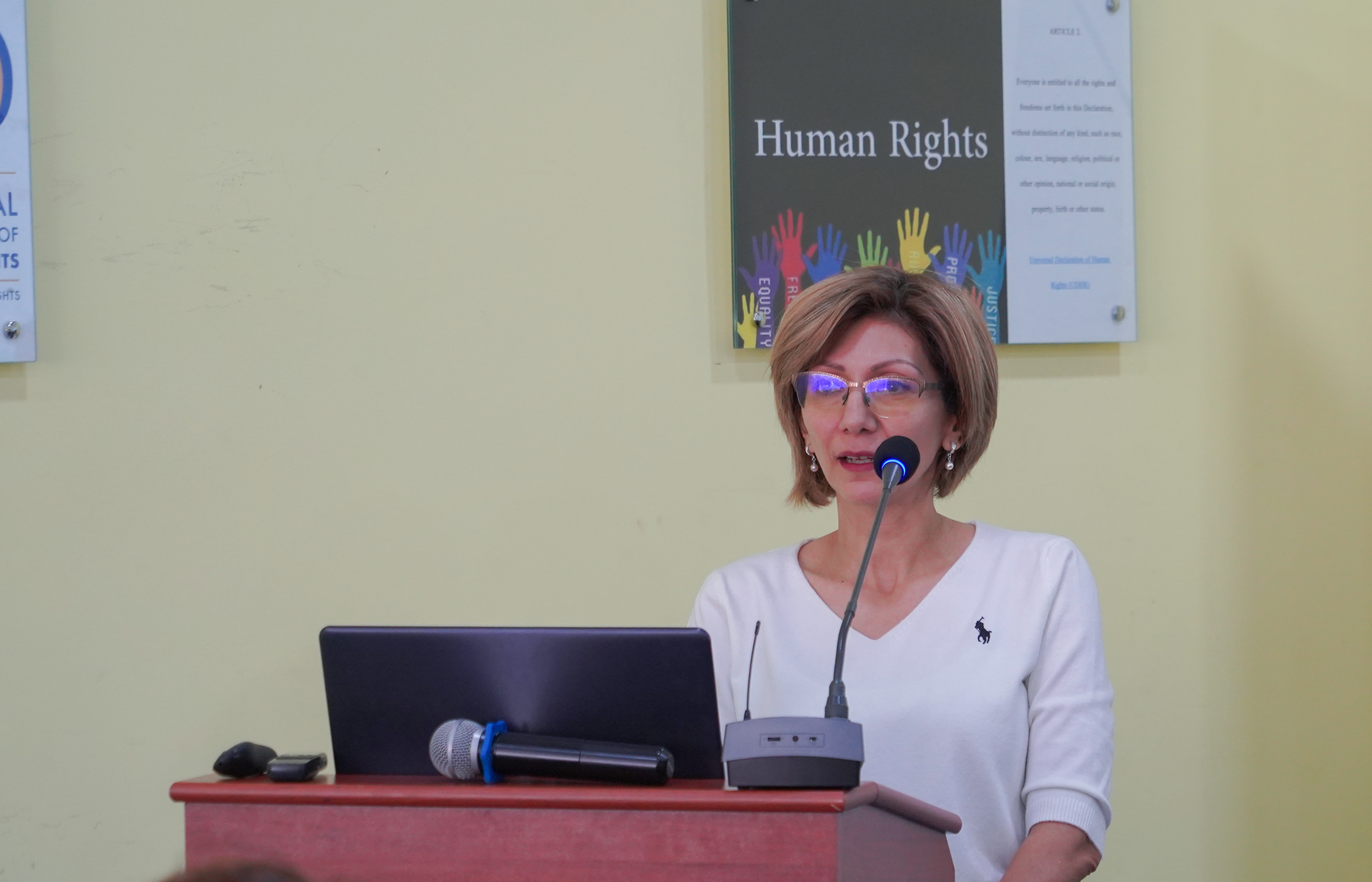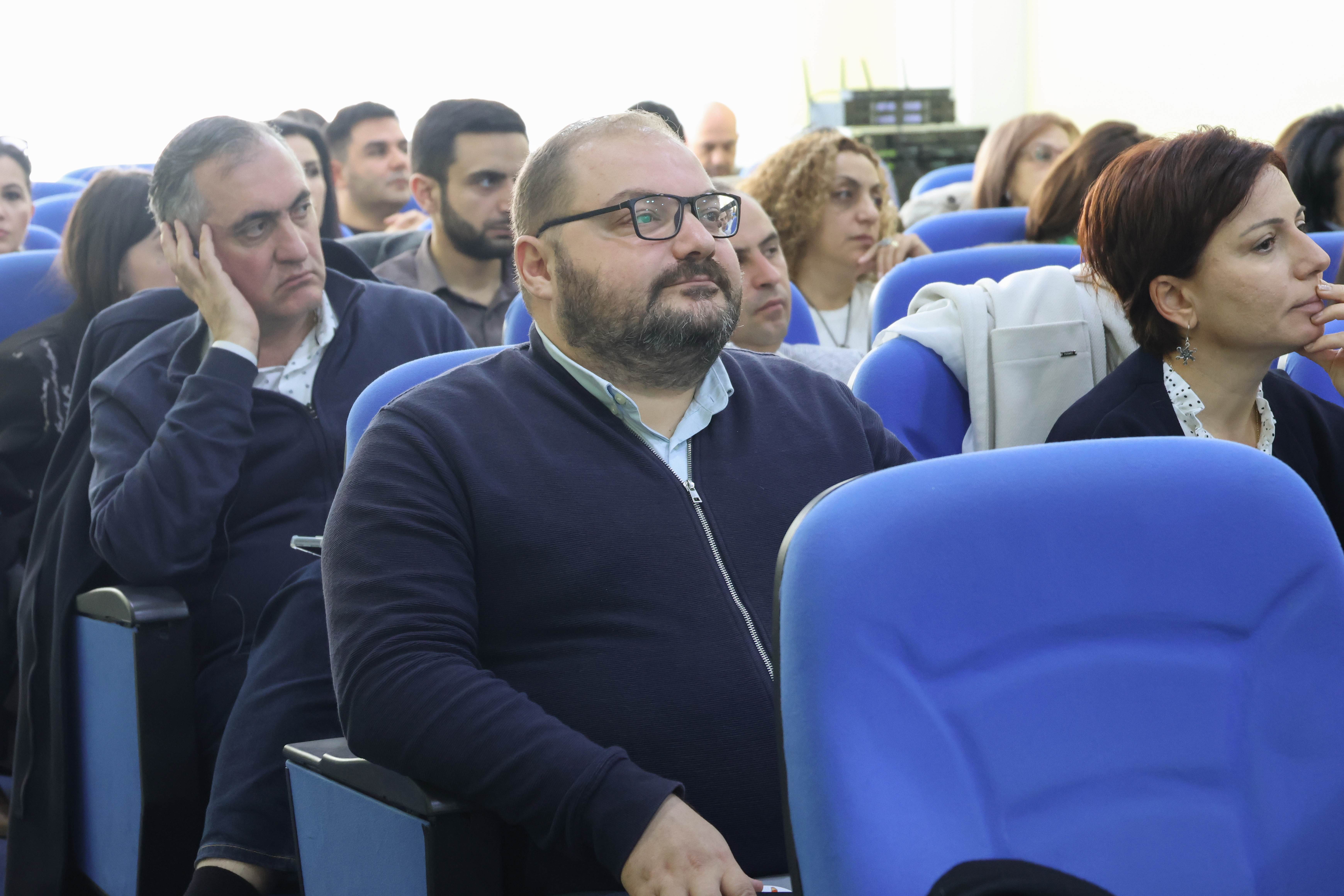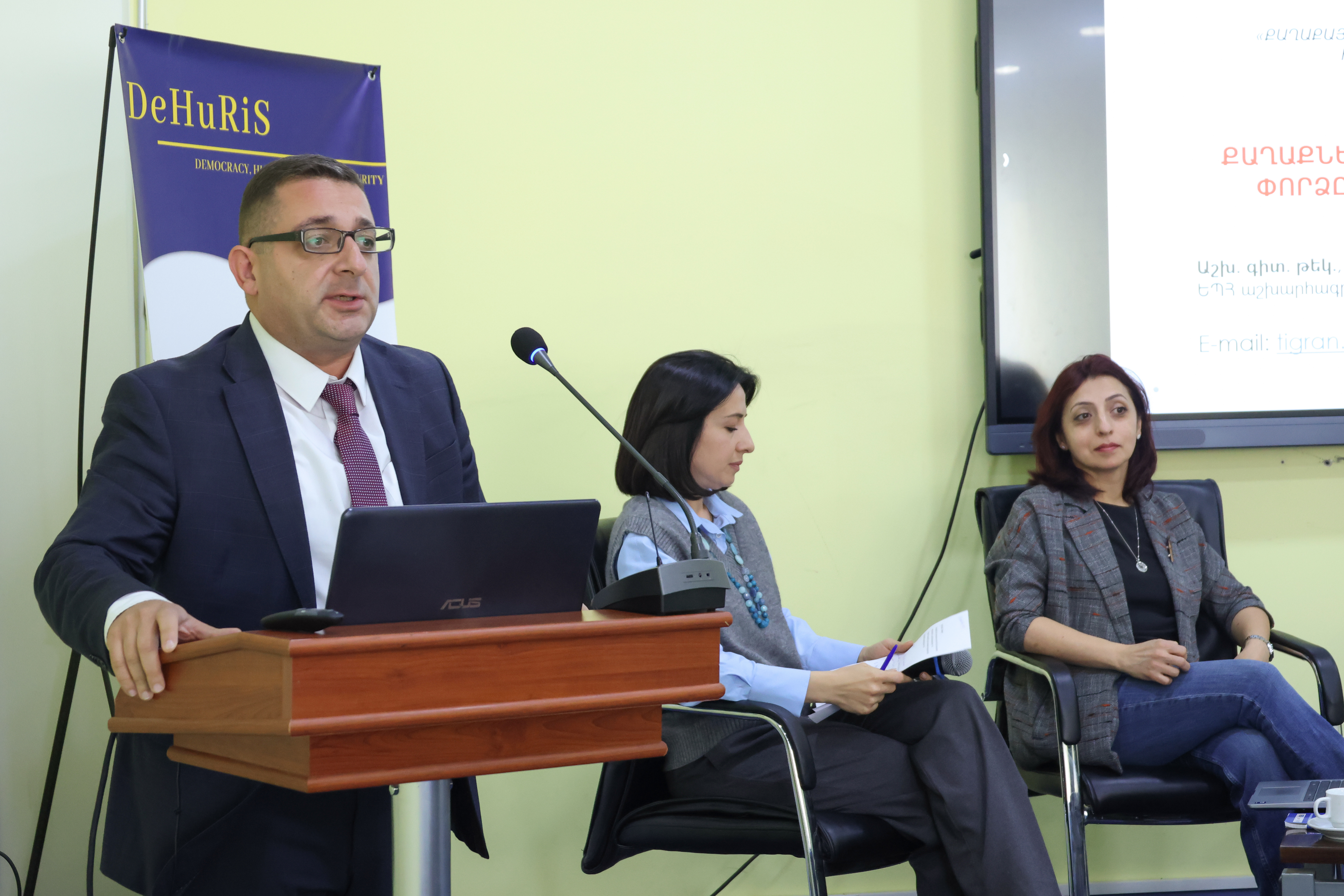November 20, 2025 | 16:41
Human rights
International cooperation
Events
Workshop on sustainable urban development in the context of human rights held at YSU
Yerevan State University hosted a workshop titled "Sustainable Urban Development and Human Rights", organized jointly by the Center for European Studies, the Faculty of Geography and Geology, and the Center for Sustainable Development, within the framework of the "Jean Monnet Centre of Excellence in European Studies: Democracy, Human Rights, and Security (DeHuRiS)" project.
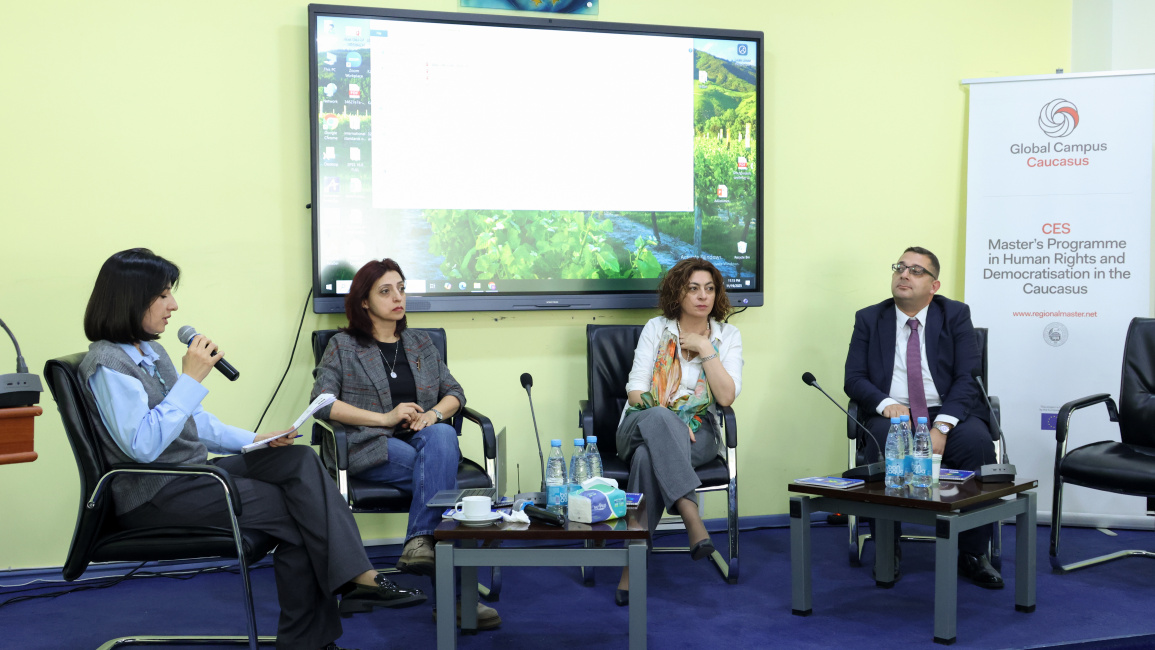
According to Lusine Gevorgyan, expert at the YSU Center for European Studies and coordinator of the DeHuRiS project, it is essential to approach urban development not only as a matter of urban planning, geology, environment, or human rights, but comprehensively, from an interdisciplinary perspective.
Gor Aleksanyan, Deputy Dean and Office Head of the Faculty of Geography and Geology, emphasized that when a city is viewed not merely as a place of residence but as an "organism", it is important to consider its development through the three dimensions of sustainable development: social, economic, and environmental.
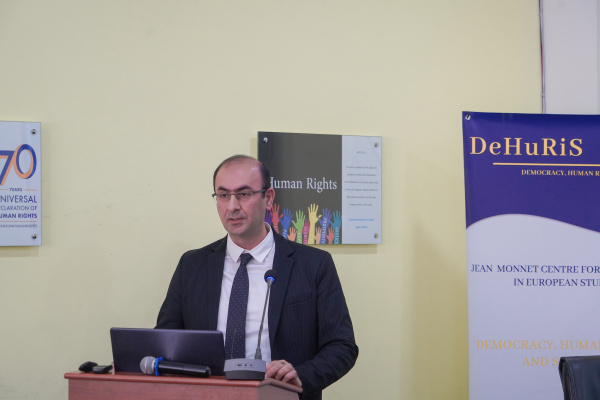
"The world population has surpassed 8 billion, with 50% living in cities, yet these cities occupy only about 3.5% of the Earth's land area. In Armenia, for example, 49 urban settlements together are home to over 64% of the population, covering only about 3% of the country's territory. In other words, while half of the global population lives on 3% of the land, in Armenia more than 64% of the population resides on 3% of the territory," Gor Aleksanyan said, noting that, from a purely proportional perspective, this figure is an especially important indicator in Armenia for discussing sustainable urban development and human rights.
He further pointed out that Yerevan, the capital city, is home to approximately 37% of Armenia's population while occupying only 0.75% of the national territory.
"If we want to have a sustainable society and sustainable development processes, the primary goal must be to ensure sustainable communities and sustainable cities. This workshop is important because it addresses a single overarching theme—the sustainable city—highlighting two key perspectives: urban sustainable development, particularly from the perspective of human rights," said Gor Aleksanyan, emphasizing that scientifically grounded approaches rarely encounter practical problems.
Anna Bruce, senior researcher at the Raoul Wallenberg Institute of Human Rights and Humanitarian Law, presented her report "Urban Planning and Development as a Tool for Equality and Human Rights: The Case of Sweden".
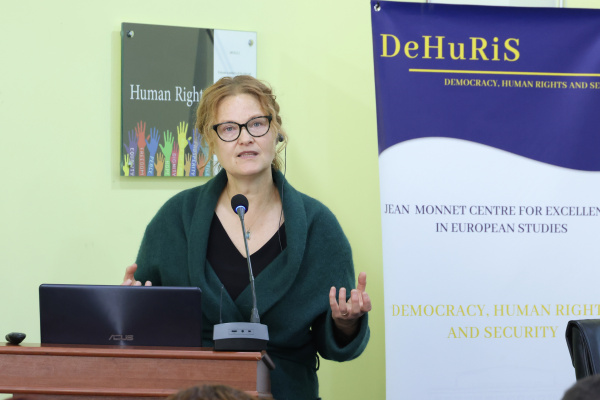
"So a lot of my work involves collaborating with different professions to see how we can integrate human rights principles and methods into their daily life, so that it isn’t extra work, but rather something that fits into existing processes. My main area in human rights is equality and disability. Regarding disability, we consider environmental challenges—the barriers within the built environment, as well as societal attitudes," said Anna Bruce, pointing out that for people with disabilities, the built environment is a key factor.
She noted that over the last ten years, people working in human rights have started looking at the built environment to see whether it can serve as one of the tools or methods for implementing human rights, in addition to social policy, legislation, and other measures.
"Issues related to rights arise not only in time, but also in space, and how that space is designed is crucial. For example, how far is the school if you live in a rural area? Is that building accessible for people with disabilities? And there are many other questions related to the human rights we all consider important," she added.
Anna Bruce further emphasized that, in order to have sustainable cities, we need to answer certain questions, such as what kinds of abilities, attitudes, and knowledge a person needs to be able to use what we are building right now.
She explained, "How we think about a person determines what rights we believe they can have and the solutions we need to build to realize those rights. So, it's not only by mistake that certain people are excluded from society—it's because we afford them less status and less importance."
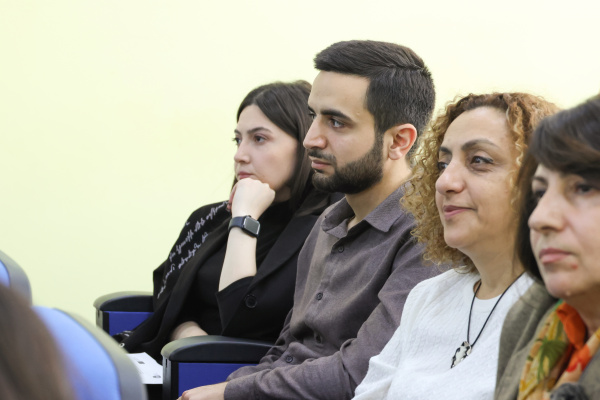
The foreign researcher stressed that we need to focus particularly on groups that have been previously overlooked, which is at the heart of achieving equality.
"Equality is not treating everybody the same way," concluded Anna Bruce.
Tigran Sargsyan, Associate Professor at the YSU Faculty of Geography and Geology, spoke on "Experience and Challenges of Sustainable Urban Governance in Armenia", while Artak Piloyan, Acting Head of the Chair of Cartography and Geomorphology, presented "Digital Country and Spatial Justice: The Role of Geoinformation Technologies in Sustainable and People-Centered Urban Governance". Harutyun Vermishyan, Head of the Chair of Theory and History of Sociology at the YSU Faculty of Sociology, delivered a report on "Right to the City: Reinterpreting Sustainable Development of Post-Industrial Cities in Armenia".
Presentations were also delivered by Lilit Sahakyan, Director of the Center for Ecological-Noosphere Studies at the NAS RA, on "Environmental Sciences for Sustainable Cities: Examples and Evidence", and Shushanik Asmaryan, Head and Deputy Director for Science of the Remote Sensing and GIS Department at the same center, on "Remote Sensing Capabilities for Studying Environmental Issues in Urban Areas".

